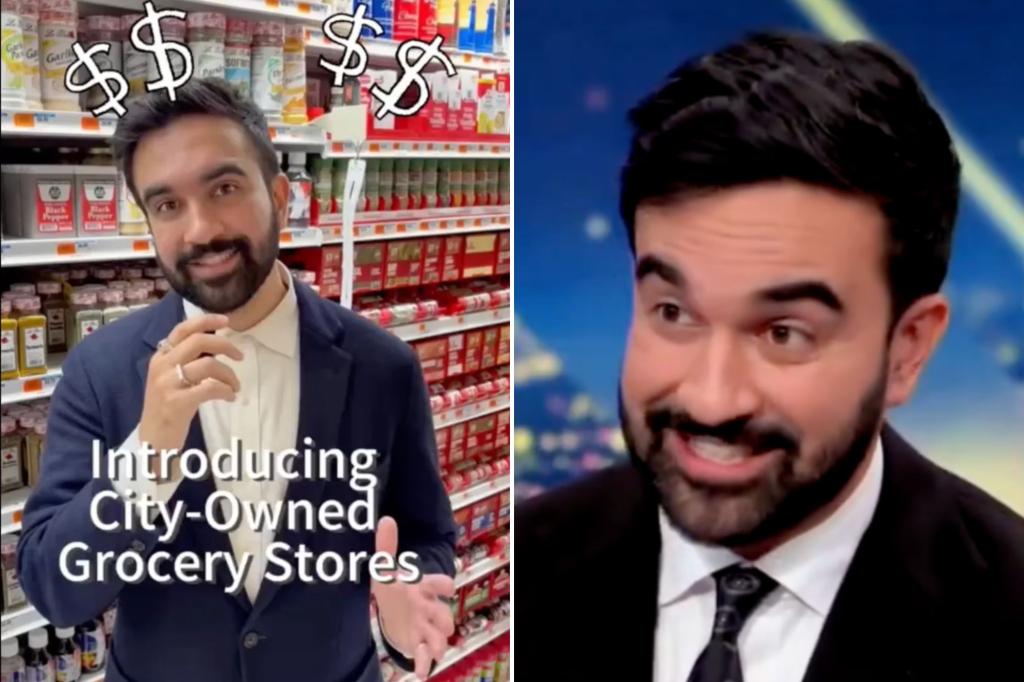Zohran Mamdani: Committed to His Vision for New York City Regardless of Electoral Margins
In a recent appearance on CNN, Democratic Socialist mayoral frontrunner Zohran Mamdani made it clear that he intends to fully implement his progressive agenda even if he wins by a narrow margin in November’s election. When anchor Abby Phillip questioned whether a potentially tight three-way race victory would provide him with a true mandate to enact his bold proposals, the 33-year-old Queens assemblyman responded with unwavering conviction. “If you win an election, you have to govern to fulfill the promises of that. Otherwise, what is the point of our politics,” Mamdani stated firmly. He referenced Minnesota Governor Tim Walz’s philosophy about using political capital to deliver on campaign commitments, signaling his intention to follow through regardless of the electoral margin. This stance has alarmed business leaders who had hoped a tight race might moderate his approach, as Mamdani has proposed significant changes including a 2% tax increase on millionaires, a 4.5% hike on corporations, and the establishment of city-owned grocery stores.
The political landscape in New York City has become increasingly complex following Mamdani’s surprising victory in June’s Democratic primary, where he defeated former New York Governor Andrew Cuomo. This upset represented a significant shift in the city’s political dynamics, with Mamdani drawing substantial support from young voters. “We saw the largest number of young people coming out to vote that we’ve seen in recent history in the city,” Mamdani noted during his CNN interview, highlighting his campaign’s success in engaging previously disconnected segments of the electorate. The primary outcome has positioned Mamdani as the frontrunner in a general election that will feature Cuomo and current Mayor Eric Adams running as independents, while Curtis Sliwa represents the Republican Party. This divided field could indeed lead to the scenario Phillip described, where the winner might secure victory with only about a third of the total votes cast.
The prospect of a Mamdani administration has sparked considerable concern among certain segments of New York City’s business community and political establishment. A real estate source revealed that many power players are “hoping at least Cuomo makes it close so Mamdani doesn’t have a mandate.” This anxiety stems from Mamdani’s openly socialist platform and his proposals for significant tax increases on wealthy individuals and corporations. His plan for government-run grocery stores has particularly worried private sector advocates, who question whether public sector solutions are appropriate for addressing issues like food deserts in underserved neighborhoods. During his CNN interview, Phillip specifically challenged Mamdani on this point, asking why government intervention would be superior to private sector partnerships in improving food access across the city.
The race has drawn national attention, with even President Trump weighing in on what he perceives as the concerning possibility of a “socialist mayor” leading America’s largest city. According to billionaire businessman and grocery store owner John Catsimatidis, Trump has expressed that such an outcome “is not going to happen under his watch.” The President has reportedly established a deadline for two candidates in the crowded field to withdraw, hoping to consolidate opposition to Mamdani behind “the most qualified candidate.” This unusual level of presidential involvement in a municipal election underscores the symbolic importance many attach to New York City’s leadership and the perceived stakes of Mamdani’s progressive agenda potentially becoming reality in such a prominent global city.
Despite the pushback from business interests and established political figures, Mamdani remains steadfast in his vision for transforming New York City. His campaign has emphasized addressing economic inequality, housing affordability, and public services through progressive taxation and direct government intervention. When questioned about his limited political experience—he has served in the state assembly since 2021—and whether this might hinder his ability to govern effectively, Mamdani has pointed to his success in building coalitions and engaging voters who traditionally feel disconnected from the political process. His campaign represents a continuation of the progressive wave that has been gaining momentum in New York politics in recent years, following the elections of figures like Alexandria Ocasio-Cortez to Congress and a growing Democratic Socialist presence in the state legislature.
As November approaches, New Yorkers face a consequential choice about the future direction of their city. Mamdani offers a bold departure from traditional governance approaches, promising to redistribute wealth and expand public services through increased taxation on the wealthy and corporations. His opponents argue for more moderate approaches that preserve private sector leadership while addressing social challenges. The election may ultimately serve as a referendum on whether New Yorkers are ready to embrace the kind of structural changes Mamdani advocates or prefer incremental reforms within the existing economic framework. Regardless of the outcome, Mamdani’s candidacy has already shifted the boundaries of mainstream political discourse in the city, bringing previously marginal ideas about taxation, public ownership, and economic justice into the center of public debate. His unwavering commitment to implementing his platform, regardless of his margin of victory, ensures that these discussions will continue to shape New York City politics for years to come.


